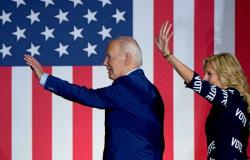OPEC Secretary General Haitham Al Ghais on Thursday defended recent adjustments to the OPEC+ agreement on oil production, calling it a success.
A statement that reassured the market, pushing prices up. Speaking at an economic forum in St. Petersburg, Russia, Al Ghais expressed optimism about strong oil demand, citing a recovery in travel. He will defend the decision of the Organization and its allies, taken on June 2, 2024, to phase out production cuts starting in October this year, despite the bearish market reaction and the drop in oil prices by almost 4 dollars per barrel in one week.
The Saudi Minister of Energy, for his part, insisted, during the same event organized in Russia, on the merits of the Alliance’s decisions. “OPEC+ can suspend or cancel its oil production increases if the market weakens, the Saudi energy minister said on Thursday, adding that he disagreed with the bank’s pessimistic view American Goldman Sachs regarding Sunday’s agreement with OPEC+.
Many analysts had estimated that the OPEC+ meeting “had a downward effect on oil prices, because it predicted an increase in supply” indicates Reuters. Goldman Sachs was one of the first to publish a two-page report on June 2 titled “Bearish Removal of Extra-Voluntary Reductions” pushing markets to focus on this “unfounded” information, according to the Saudi Ministry of Finance. energy.
“Adjust tuning if necessary”
Speaking at the Russian Economic Forum in St. Petersburg, which he attended with a number of other senior ministers and OPEC+ officials, Saudi Energy Minister Prince Abdulaziz bin Salman said that “Goldman Sachs used incorrect figures to reach its conclusions.” “I counted that, on both pages, they mentioned the word bearish seven times. Which is bad technically and worse professionally. They put figures that are false,” he declared.
The Saudi minister added that OPEC+, which brings together the Organization of the Petroleum Exporting Countries and its allies, including Russia, can suspend or cancel production increases if it decides the market is not strong enough. “It is an agreement in place for a year and a half, it is well-established, certain mechanisms are not new, we have exercised it before… in particular this question of pause or inversion,” he said. he added, referring to the mechanisms already put in place by OPEC+.
Russian Deputy Prime Minister Alexander Novak, for his part, said the group could adjust the agreement if necessary, adding that the drop in prices after the meeting was due to a misinterpretation of the agreement and “factors speculative.” “They are manipulating the market.
The June 2 meeting was no exception,” he said, referring to media and analysts. “We are ready to react quickly to market uncertainties,” Novak added during the same event. Following the meeting organized on June 2, 2024, eight OPEC+ members, including Algeria, agreed to gradually phase out voluntary reductions of 2.2 million barrels per day over one year, starting in October.
OPEC+ also agreed to maintain further cuts amounting to 3.66 million b/d until the end of 2025. Oil fell as the week’s trading opened on Monday, the benchmark crude Brent then hit a four-month low below $77 a barrel on Tuesday.
Starting Thursday, prices finally returned to bullish levels at around $79. Yesterday, oil stabilized significantly during trading, with the barrel of Brent returning to levels above 80 dollars in the wake of declarations from the SG of OPEC, Saudi Arabia and Russia.






